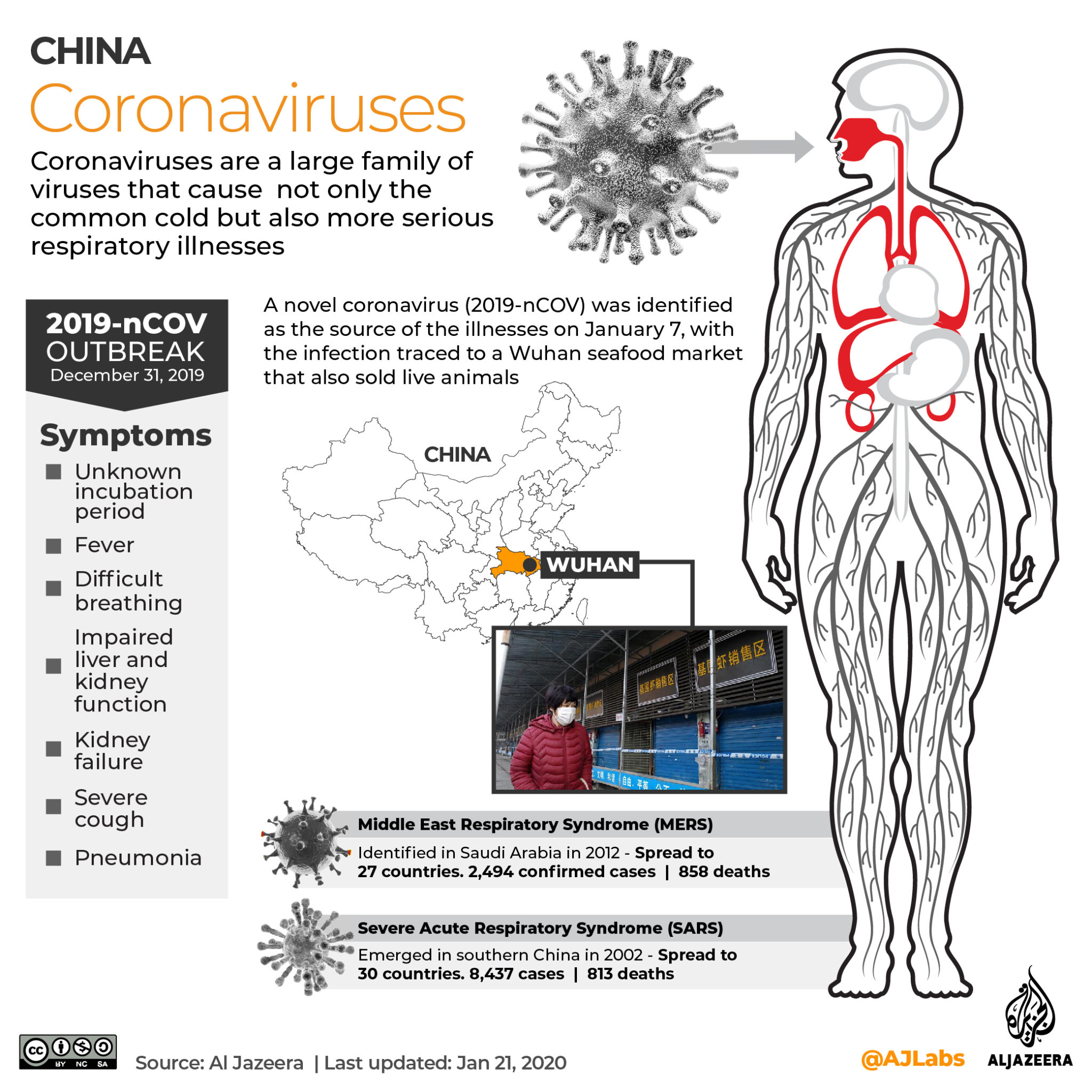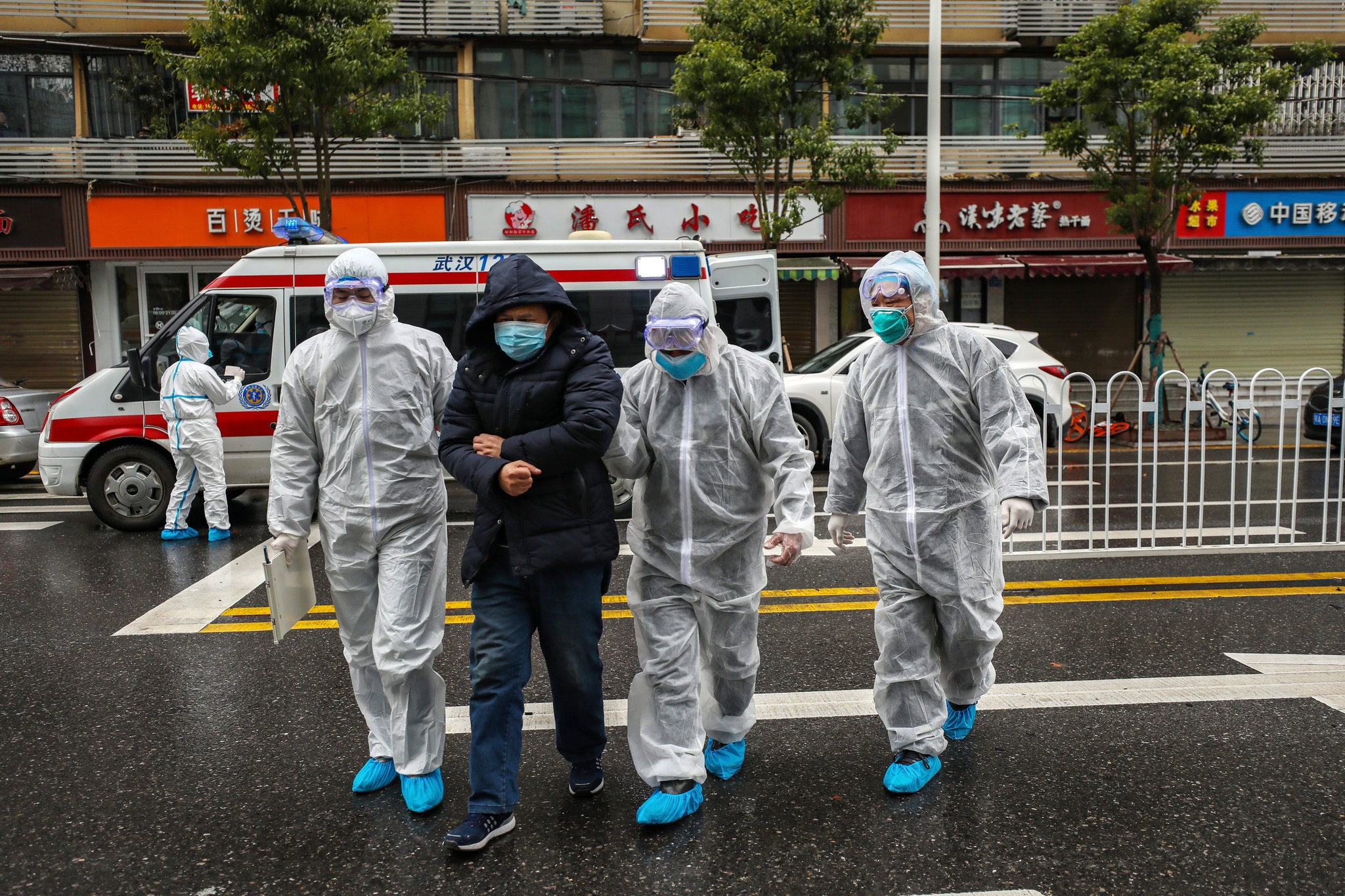Outbreak of a new coronavirus that began in the Chinese city of Wuhan has so far killed 81 people in China.
Infections have been confirmed in many other countries. But of the nearly 3,000 people who have so far contracted the virus, the vast majority live in China.
Inside China Most of those deaths, 76, were in the central province of Hubei, the center of the outbreak.
Officials in the capital, Beijing, which has a population of about 21 million, announced the first death in the city from coronavirus on Monday.
The patient, a 50-year-old man, had traveled to Wuhan on Jan. 8 and developed a fever after returning to Beijing a week later. He was diagnosed on Jan. 22 and died of respiratory failure, the Beijing Municipal Health Commission announced.
Across China there have been 2,744 confirmed cases, of which 1,423 cases were in Hubei. The youngest confirmed case is a 9-month-old girl in Beijing.
Mayor of Wuhan, the provincial capital of Hubei, said there were about 3,000 patients in the city being treated for the virus. Half of those patients, he said, would eventually test positive for the disease.
Coronaviruses are a large family of viruses that cause illnesses ranging from the common cold to more severe diseases such as Severe Acute Respiratory Syndrome (SARS) and Middle East Respiratory Syndrome (MERS), according to the World Health Organization (WHO).
They circulate in animals and some can be transmitted between animals and humans. Several known coronaviruses are circulating in animals that have not yet infected humans.
The new coronavirus has been named novel coronavirus (2019-nCoV). It is the seventh coronavirus known to affect humans.

Picture source Thanks : Aljazeera
The symptoms includes Common signs of infection include fever, coughing and breathing difficulties. In more severe cases, infection can cause pneumonia, SARS, kidney failure and death.
The incubation period of the new coronavirus is thought to be between one and 14 days. The virus is contagious before symptoms appear.
Elsewhere, cases have been confirmed in Australia, France, Japan, Malaysia, Nepal, Singapore, South Korea, Taiwan, Thailand, the United States and Vietnam.
China alerted WHO to several cases of pneumonia in Wuhan on December 31. The new coronavirus is thought to have originated in a seafood market, where wildlife was also sold illegally.
Scientists comparing the genetic sequences of the new coronavirus with those of other known coronaviruses have suggested it likely originated in snakes.
Efforts to contain the outbreak have caused major disruption in China, with almost 20 cities facing travel restrictions, affecting at least 56 million people. Screening stations have been set up at bus, train and plane terminals nationwide.
China has banned the wildlife trade and extended the Lunar New Year holiday until February 2 to prevent transmission accelerating when people return from holidays.
The US, Japan and several European countries are working to evacuate their citizens from Wuhan, and the wider Hubei province in some cases.
WHO has acknowledged that the virus is an emergency in China but said on January 23 that it was too early to declare it a public health emergency of international concern.
Tedros Adhanom Ghebreyesus, the agency’s chief, has arrived in Beijing to meet government and health officials.
People are being urged to follow local safety measures. WHO recommends basic hand hygiene such as washing hands with soap and water, and making sure to cover your mouth with your elbow when sneezing or coughing.
Avoid unnecessary, unprotected contact with animals and be sure to thoroughly wash hands after contact. And also to ensure meat consumed is cooked thoroughly.









